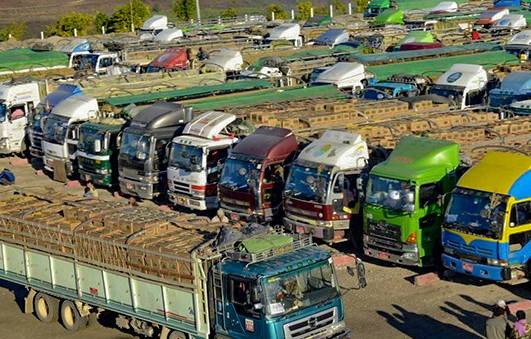
Sino-Myanmar border trade has registered a decrease of US$123.5 million between 1 October and 17 July in the current financial year 2019-2020.Data from the ministry show the value of Sino-Myanmar border trade in all five border areas touched over $4.7 billion in the current budget year, which significantly plunged from over $4.83 billion recorded in the year-ago period.Border trade values totalled $3.89 billion through Muse border in this FY, $123.35 million via Lweje, $430.7 million via Chinshwehaw, $263 million via Kampaiti, and over $4.45 million via Kengtung.
The Commerce Ministry’s data showed a drop in trade value through all those border areas.The decline in trade is attributed to the trade suspension and trade delay amid the tight security measures of coronavirus. China has been stepping up border control measures to contain the spread of the coronavirus infection. The transport delays caused damage to the quality of the goods and doubled the truck fares. Next, the export of agricultural products is often halted, on account of China clamping down on illegal goods. Myanmar merchants are facing difficulties in exporting goods to China through the legitimate channel as they find the tax levied by China is too high.
In a bid to lower trade barriers and offer relief to Myanmar traders through the border trade channel, the Ministry of Commerce, the related departments and Union of Myanmar Federation of Chambers of Commerce and Industry have been negotiating with China counterparts. The two countries are making efforts to set up more border economic cooperation zones and promote border trade. Myanmar exports rice, sugar, pulses, sesame seeds, corn, dried tea leaves, fishery products, minerals, and animal products to China while it imports agricultural machinery, electrical appliances, iron and steel-related materials, raw industrial goods, and consumer goods from the neighboring country.
Source: The Global New Light of Myanmar
